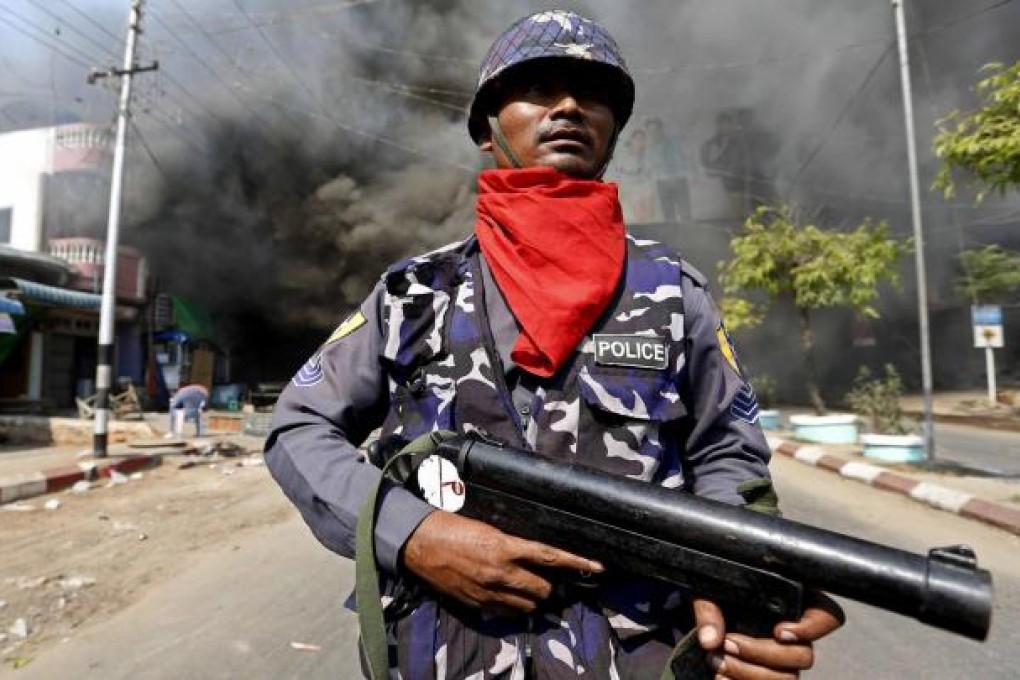Myanmar unrest pushes hapless police into firing line
Ill-equipped and poorly trained officers face growing fury after botched raid on copper mine protesters and religious riots that left 43 dead

After decades in the shadow of the military, Myanmar's ragtag police force has found itself thrust onto the security frontline and under fire for failing to stop a wave of religious unrest.
Under the former junta that ruled the country for almost half a century, any sign of unrest was quickly quelled by soldiers.
But since a new reformist government took power two years ago, the job of maintaining order has been largely left to police who lack basic equipment and only have about a year of training.
"The police were never well-equipped," said an officer with 20 years in the force who did not want to be named.
"Under the military government, nobody cared about the police," the officer said. "Still they don't care now, but we're the first to be blamed when something happens even though we tried our best to protect the people."
They don't care now, but we're the first to be blamed when something happens even though we tried our best to protect the people
The challenges are immense in a society testing the limits of its new-found freedoms, including the right to protest.